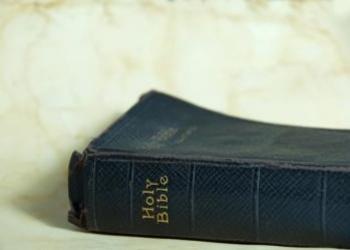What Is the Holy Spirit?

The Day of Pentecost was remembered two weeks ago in many churches around the world. Did you ever wonder why this Holy Day—mentioned in the book of Acts and other books of the Bible—was observed by the Church that Jesus began?
As you may now have come to understand, the Day of Pentecost became well known as the time when God's Church received the Holy Spirit. This dramatic event was accompanied by what looked like tongues of fire descending upon the church members (Acts 2:3).
Since the Day of Pentecost was observed so recently by many Christians, let's confirm what the Holy Spirit is and see how it affects our lives as Christians.
The Power of the Highest
To begin with, the word "spirit" is translated from the Hebrew ruach and the Greek pneuma. Both words denote breath or wind—an invisible force. Scripture says that "God is a Spirit" (John 4:24).
So, just what is the Holy Spirit? One of the simplest descriptions is this: It is the "power of the Highest."
Rather than the Holy Spirit being a distinct person or entity, the Bible most often refers to it as and connects it with God's divine power.
The prophet Micah was inspired to write: "But truly I am full of power by the Spirit of the Lord" (Micah 3:8, emphasis mine throughout).
Jewish scholars, examining the references to it in the Old Testament Scriptures, have never defined the Holy Spirit as anything but the power of God. In the New Testament, the apostle Paul referred to it as the "spirit of power, love and a sound mind" (2 Timothy 1:7.)
Informing Mary that Jesus would be supernaturally conceived in her womb, an angel told her, "The Holy Spirit will come upon you," and the divine messenger described this Spirit to her as "the power of the Highest [which] will overshadow you" (Luke 1:35).
Then, in a noteworthy Pentecost-related statement, Jesus told His followers, "You shall receive power when the Holy Spirit has come upon you" (Acts 1:8).
God's Word shows that the Holy Spirit is the very nature, presence and expression of God's power actively working in His servants. Indeed, it is through His Spirit that God is present everywhere at once throughout the universe and affects it at will. He is omnipresent.
Confronted with such scriptures, even the New Catholic Encyclopedia admits:
"The OT [Old Testament] clearly does not envisage God's spirit as a person…God's spirit is simply God's power. If it is sometimes represented as being distinct from God, it is because the breath of Yahweh acts exteriorly…The majority of NT [New Testament] texts reveal God's spirit as some thing , not some one ; this is especially seen in the parallelism between the spirit and the power of God" (1965, Vol. 13, "Spirit of God," pp. 574-576).
The reference work A Catholic Dictionary similarly acknowledges,
"On the whole the New Testament, like the Old, speaks of the spirit as a divine energy or power" (William Addis and Thomas Arnold, 2004, "Trinity, Holy," p. 827).
Describing the Holy Spirit
In contrast to God the Father and Jesus Christ, who are consistently compared to human beings in Their form and shape, the Holy Spirit is consistently represented by various symbols and manifestations in a completely different manner—such as breath, wind, fire, water, oil [remember the parable of the ten virgins trimming their oil lamps?], a dove and a down payment on eternal life.
And so, as we remember the Day of Pentecost and the many Christians who observed this particular Holy Day of God this year, let's be reminded that it is the "power of the Highest."
For more information on the subject of the Holy Spirit, be sure to go online and read or request your own copy of Is God a Trinity? It's good to be well informed on this important topic and the meaning of the Day of Pentecost.
